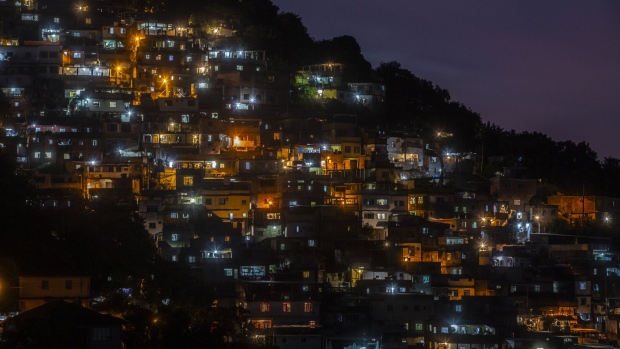Oct 22, 2021
Eletrobras Receives Bank Proposals for $18 Billion Equity Deal
, Bloomberg News

(Bloomberg) -- Eletrobras, the power utility set to be privatized, received proposals from 14 banks to coordinate what could be one of the biggest equity sales by a Brazilian firm.
The firm hired local investment banking boutique Laplace Finanças to help enlist four global coordinators and one leading bank for retail distribution for a public share sale of voting shares that could reach 103 billion reais ($18 billion), in which the government aims to reduce its stake to 45%, according to people familiar with the matter. Banks may be selected as soon as November, the people said, asking not to be identified discussing a private matter.
Brazil’s lower house approved a plan to privatize the power giant in June, allowing the economy ministry to raise funds to offset a drought-related jump in electricity prices as the economy tries to reopen. Proceeds from the privatization will be used to reduce consumer electricity bills by up to 7.4%, according to the economy ministry, with another portion going to public development programs.
Laplace declined to comment and Eletrobras didn’t reply to an email seeking comment.
The government plans to first sell new voting shares in a capital increase of about 23 billion reais around the beginning of next year, according to development bank BNDES, which is organizing the sale. Additional offerings of government-held shares could be necessary to cut its stake to 45%, with sales volumes potentially reaching more than 80 billion reais, BNDES has said. The government plans to keep a so-called golden share, that gives it veto power in some decisions.
The transaction needs approval from the Federal Court of Accounts, according to BNDES. The government, including BNDES, holds 61% of the company’s total capital.
The deal was approved this week by a government committee and is going forward even after a political crisis that flared up and hit markets, the people said. Two of Brazil’s Economy Ministry secretaries asked to step down this week after the government announced a plan to increase the basic income for the poor by surpassing a spending ceiling.
©2021 Bloomberg L.P.


